Berlin Startup Wins Over 40% of Bus Market Share With Its Ticket Booking Platform
Challenge
Build a platform before the bus market opens
Mobile app development,
UX/UI design
Our Partnership
3 years of
working together,
cross-border and in-person
Our collaboration started in late 2011, when we began working on their web application. In 2012, we took on developing the first versions of their Android and iOS apps as well.
Over the next three years, our team (which counted 10 people at its peak) worked closely with the client’s in-house developers. We rolled out new features and helped handle traffic spikes during holidays and major promo campaigns.
We visited Berlin twice during the project. The first trip was to celebrate the launch of their very first bus line – and to collaborate in person. On our second visit, we shared ideas, aligned on product plans, and booked our own intercity trips using the app. It was incredibly rewarding to see the software we’d spent months working on come to life out in the real world.
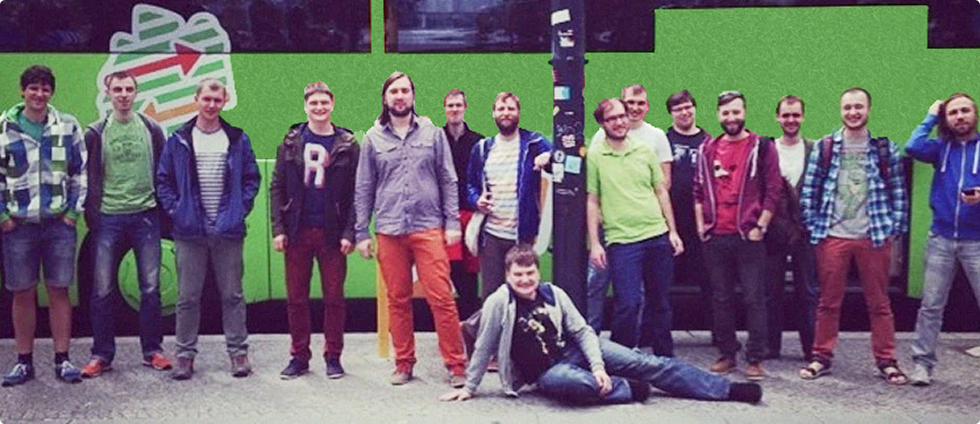
Stfalcon and the client team in Berlin in 2014
Solution
Multi-platform
bus ticketing app with
real-time data
We built the booking platform for both web and mobile, including the first versions of the client’s Android and iOS apps. All platforms gave users access to live route data and hundreds of intercity routes across Germany. We worked with this Berlin-based startup from their first prototype in 2011 through their quick rise as the country’s leading intercity bus operator
Process
How we helped build the platform behind Germany’s
fastest-growing
intercity bus startup
Starting this project, we divided responsibilities with the client’s team. Stfalcon focused on the core product logic – routing, booking, and integrations – while their internal developers managed the local payment system and later versions of the mobile apps. Below are the main stages of our work over the years
We defined the booking logic and built a scalable backend
We worked with the internal team to define the key booking flows: from searching for trips and selecting stations to viewing seat availability and handling payments.
We built the backend using Symfony2 and a REST API architecture. To handle high volumes of requests, especially during peak periods like holidays or discount campaigns, we used Silex, a lightweight PHP micro-framework. Since it is based on Symfony, we could easily add Symfony components as needed for more advanced functionality.
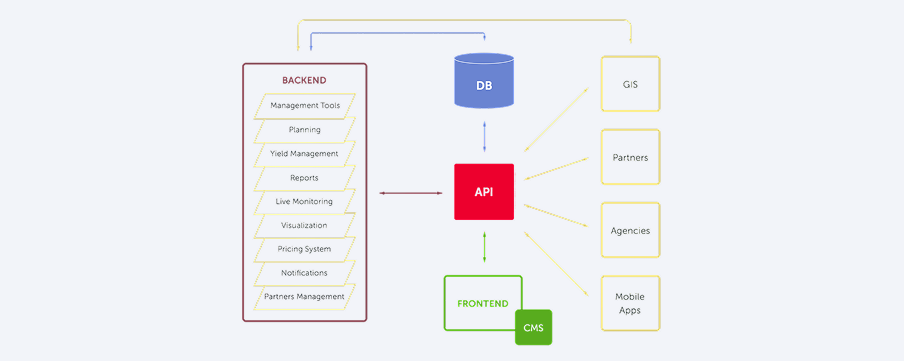
The final version of the platform consisted of three main parts: the sales website (frontend), the company management system (backend), and a central API that connected everything. We also developed a separate portal for partner integrations with bus operators and agency portals, giving them access to reports, sales data, and live stats.
We designed a helpful web interface for desktop users
To develop a full-featured web interface, we focused on the most important user flows – searching for trips, selecting seats, and filling in passenger details. Alongside functionality, we also improved the visual design of key pages while keeping the original style intact.
Here’s what we implemented during this stage:
- A smart search form with filters for destination, travel date, and direction
- Real-time results showing available routes, prices, and departure times
- Auto-complete for station names to speed up input and reduce errors
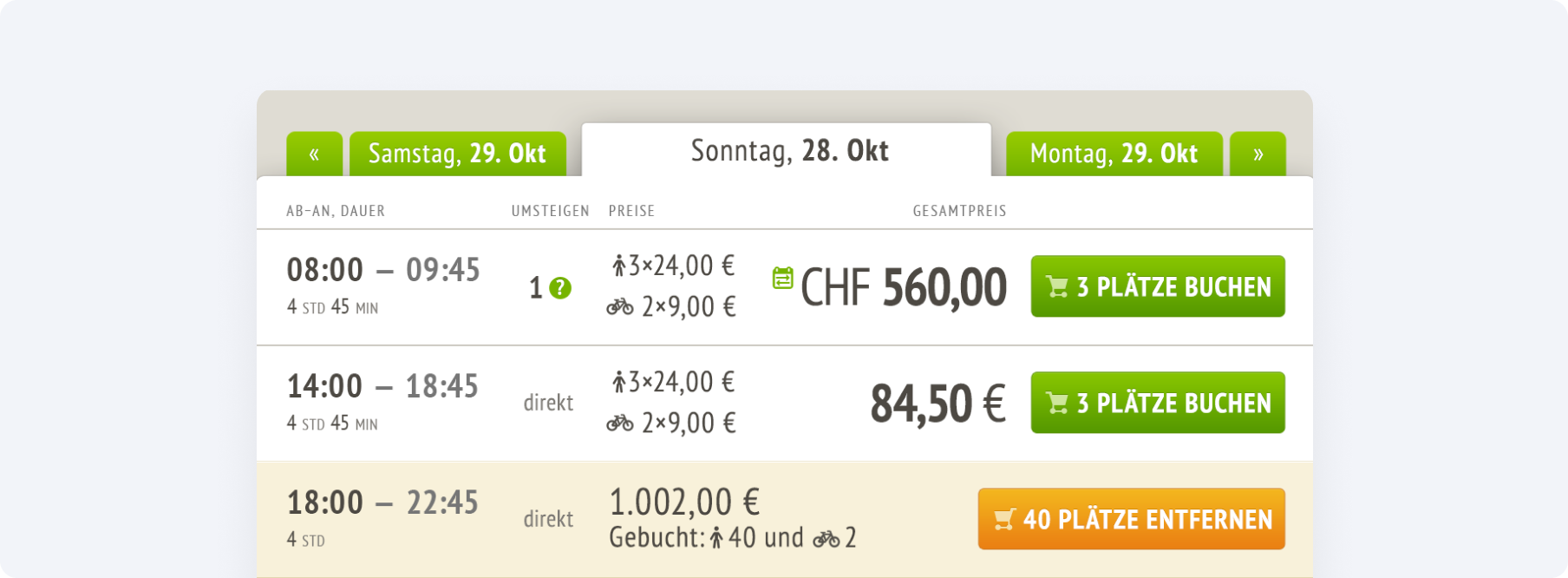
To support the growing network, we also added:
- A routing map that showed how cities were connected
- Landing pages for major cities (like Berlin and Munich)
- An icon-based FAQ to help users find answers without contacting support
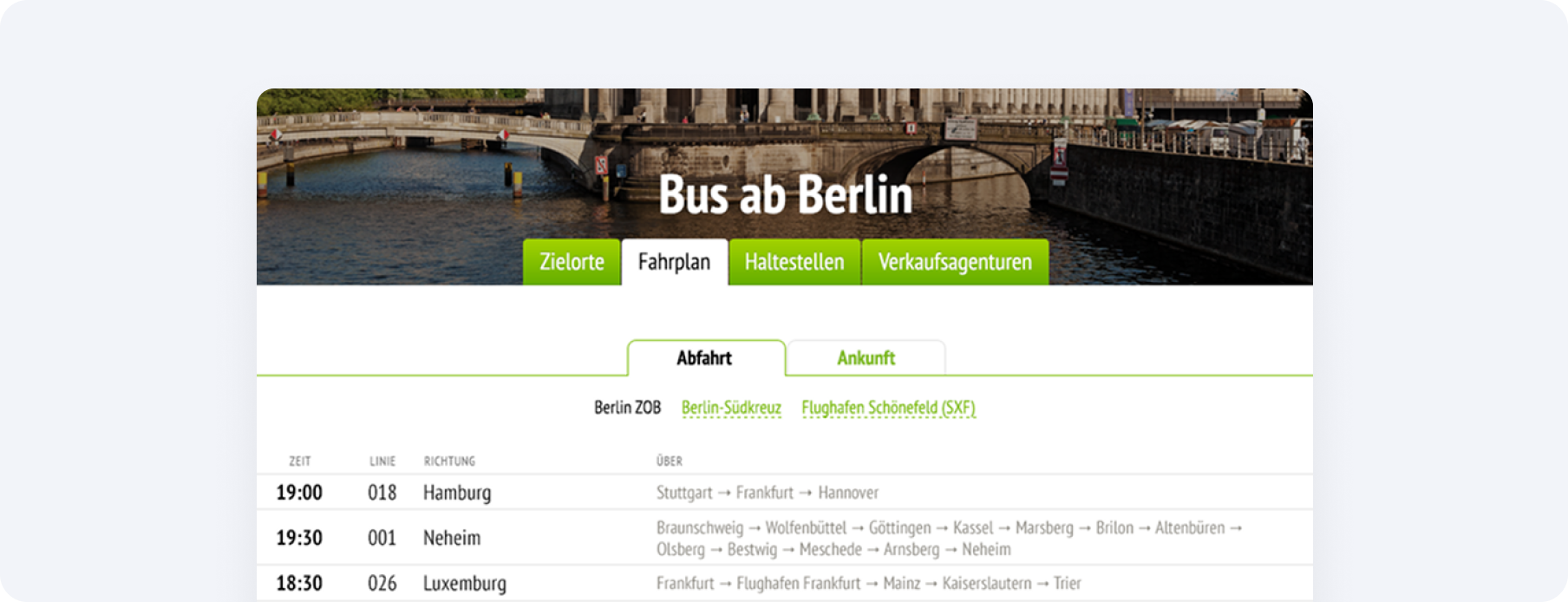
To support SEO and offline ticket sales, we created landing pages for each major city. These included schedules, available routes, bus stop maps, and a list of local agencies where tickets could be bought in person.
We developed mobile apps from scratch before the market boom
The client saw the need for a mobile app that would appeal to young, on-the-go travelers. That’s why we got to building native Android and iOS applications, too.
We focused on the UI and closely collaborated with the client’s team on the first version. After that, their in-house team continued development and brought the apps to market.
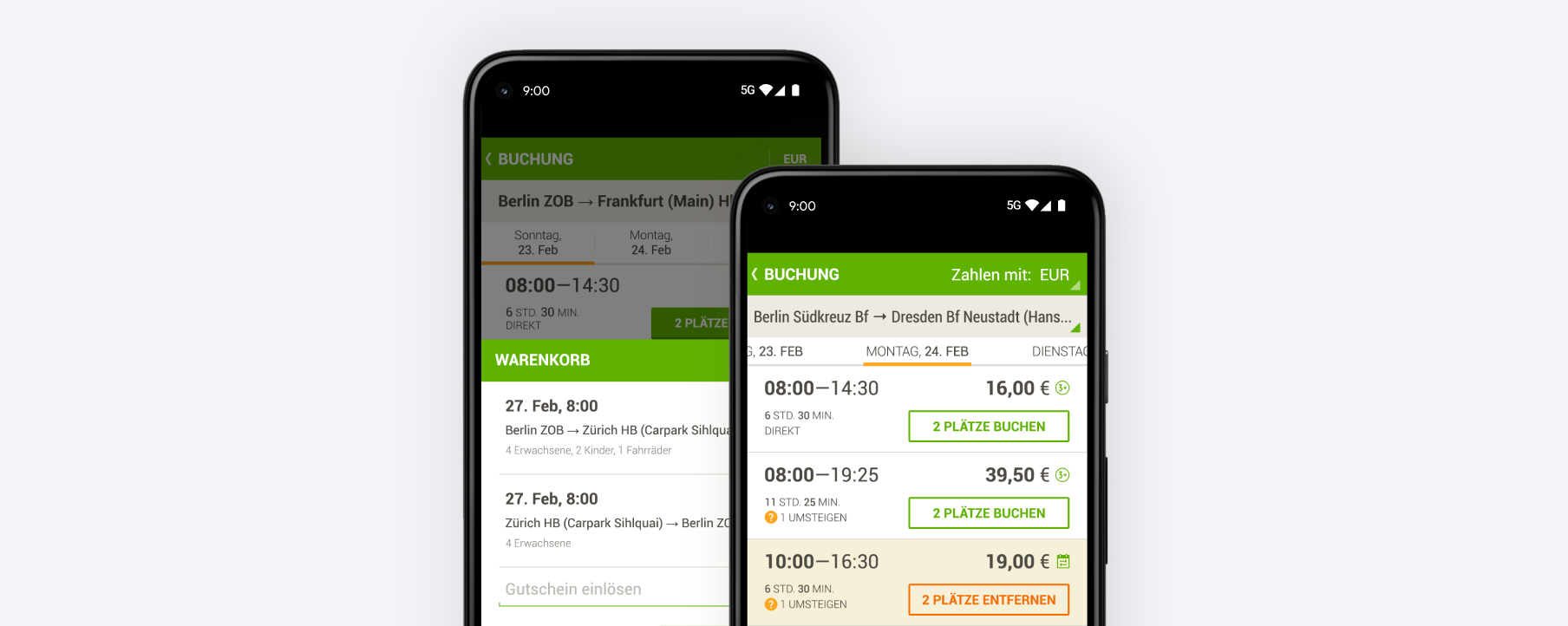
We created clean, user-friendly apps with three main sections – Station, Booking, and Information – where users could book tickets easily, with no need to register.
Key features included:
- Real-time departure and arrival data
- An interactive map for choosing stops
- Search filters for time, price, and comfort level
- A fast checkout with no account required and minimal steps
We helped add new features and handle the growing load
As the client was adding more routes in 2013-2014, our role shifted to technical support. We worked on some major additions, among which were:
- Live bus maps, showing vehicles in real time along their routes
- Promocode support, making it easy to apply discounts during campaigns
- Transfer logic, allowing users to book routes with stopovers or multiple legs
- Partner tools, so bus fleet operators could view reports, schedules, and performance stats
- Price optimization algorithms, to help dynamically adjust pricing based on demand and timing
We also supported product scaling. They started with a single route – Freiburg to Munich – and we created the first visual map for it. As the network grew, we redesigned the map three times to keep up with the expanding system.
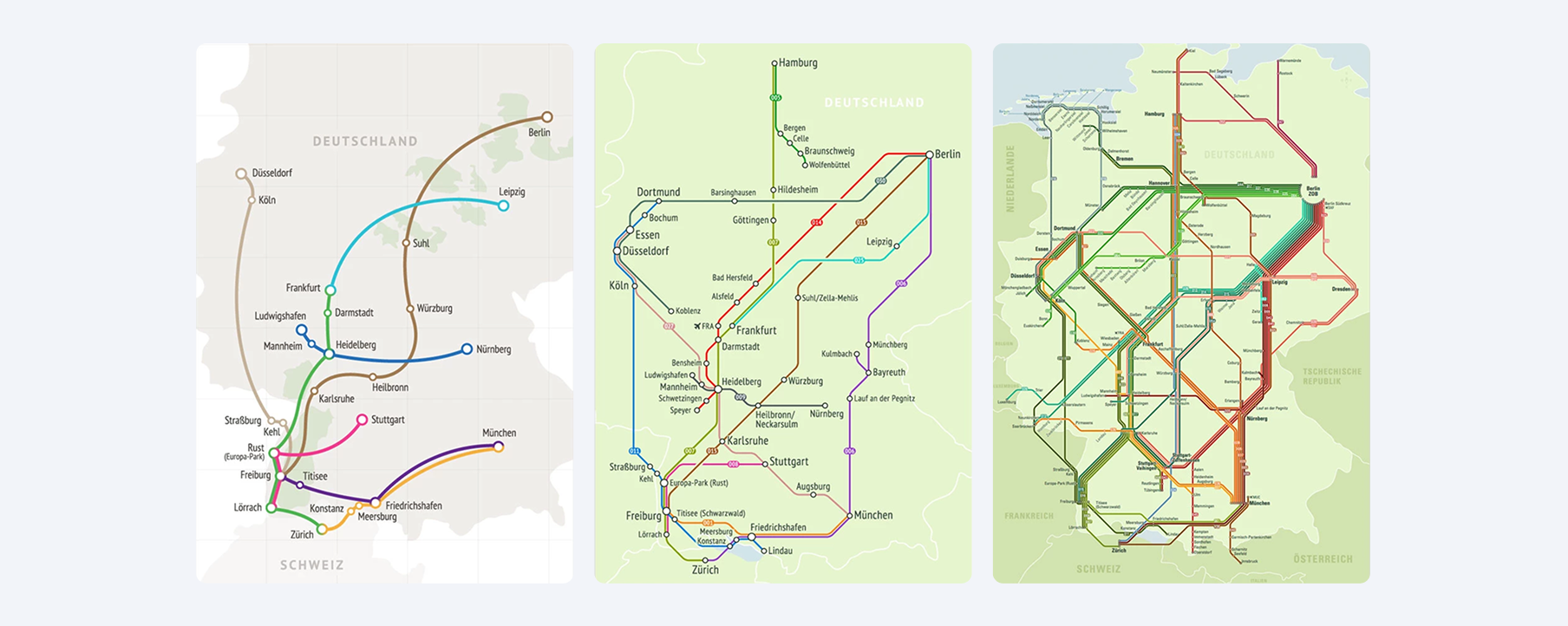
We were inspired by iconic metro maps from cities like London and New York. As the number of lines grew, the map had to be constantly optimized and geotagged.
Result
A multi-platform bus ticket app at the core of Europe’s
biggest intercity bus network
This Berlin-based startup came to Stfalcon in 2011 with just a product vision. We brought it to life, building the entire platform from scratch. They launched in 2012 with a small cross-border network. By late 2014, they held 38.5% of Germany’s intercity bus market by route coverage – the largest share of any operator. They went head-to-head with the national rail monopoly and came out on top.
In 2015, they merged with another major operator, captured 73% of the market, and became what is now Europe’s largest intercity bus company.
Here’s how Stfalcon helped grow the platform from day one:
- Over 1,300 routes across Germany and Europe
- 8 M+ passengers transported with scalable system
- Native Android + iOS apps with real-time booking
Want to achieve similar results?
We can help make it happen. Experts in tackling logistics and transportation challenges, we can build a custom system that eliminates your operational bottlenecks
Cast:
 Stepan Tanasiychuk
Stepan TanasiychukCEO & Founder
 Oleg U.
Oleg U.Designer
 Ivan Samaryov
Ivan SamaryovFront End Developer
 Artem
ArtemBack End Developer
 Andrey Shkodyak
Andrey ShkodyakDeveloper
 Yevhen
YevhenDevOps
 Oleksandr
OleksandrAndroid Developer

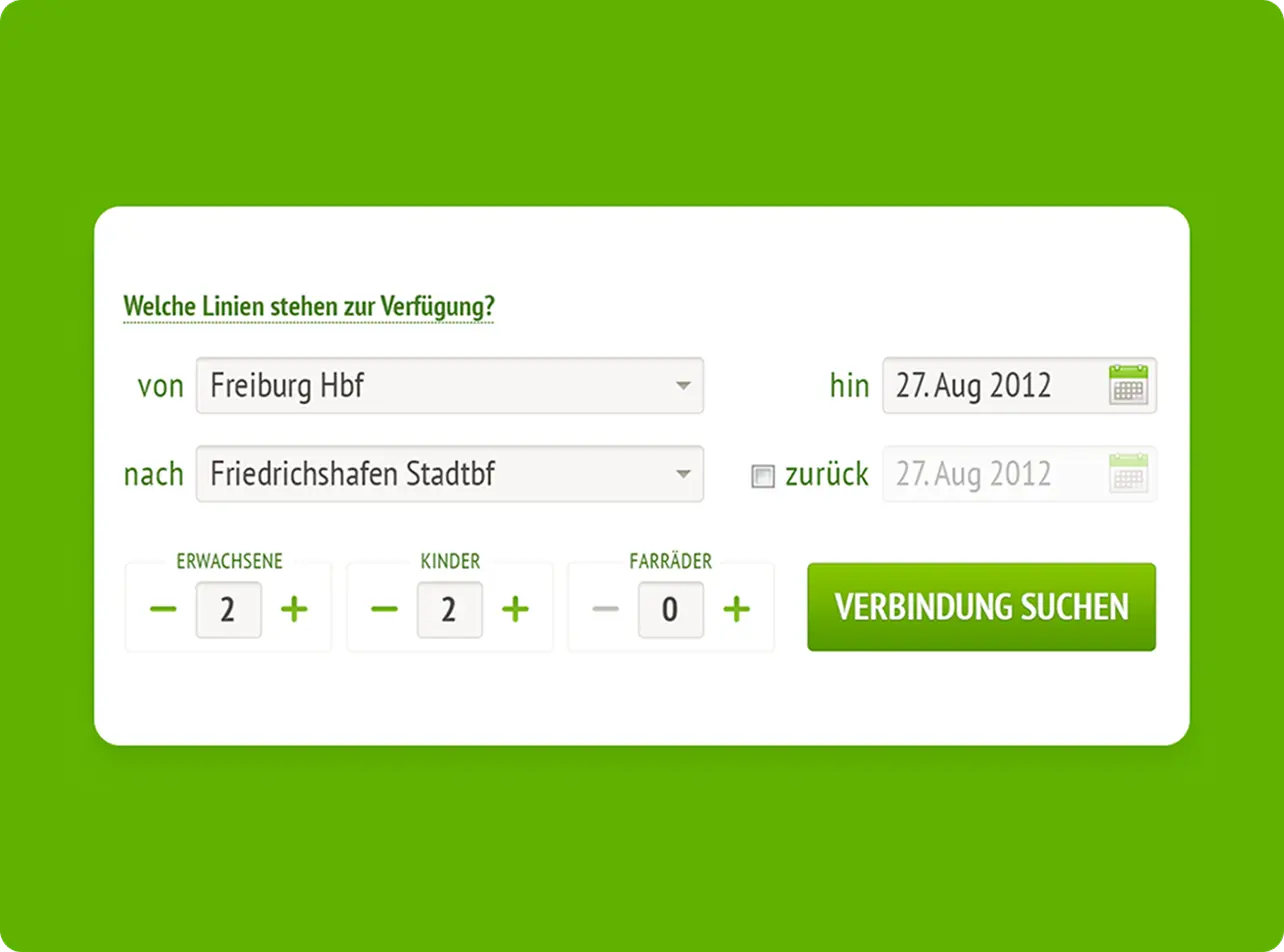
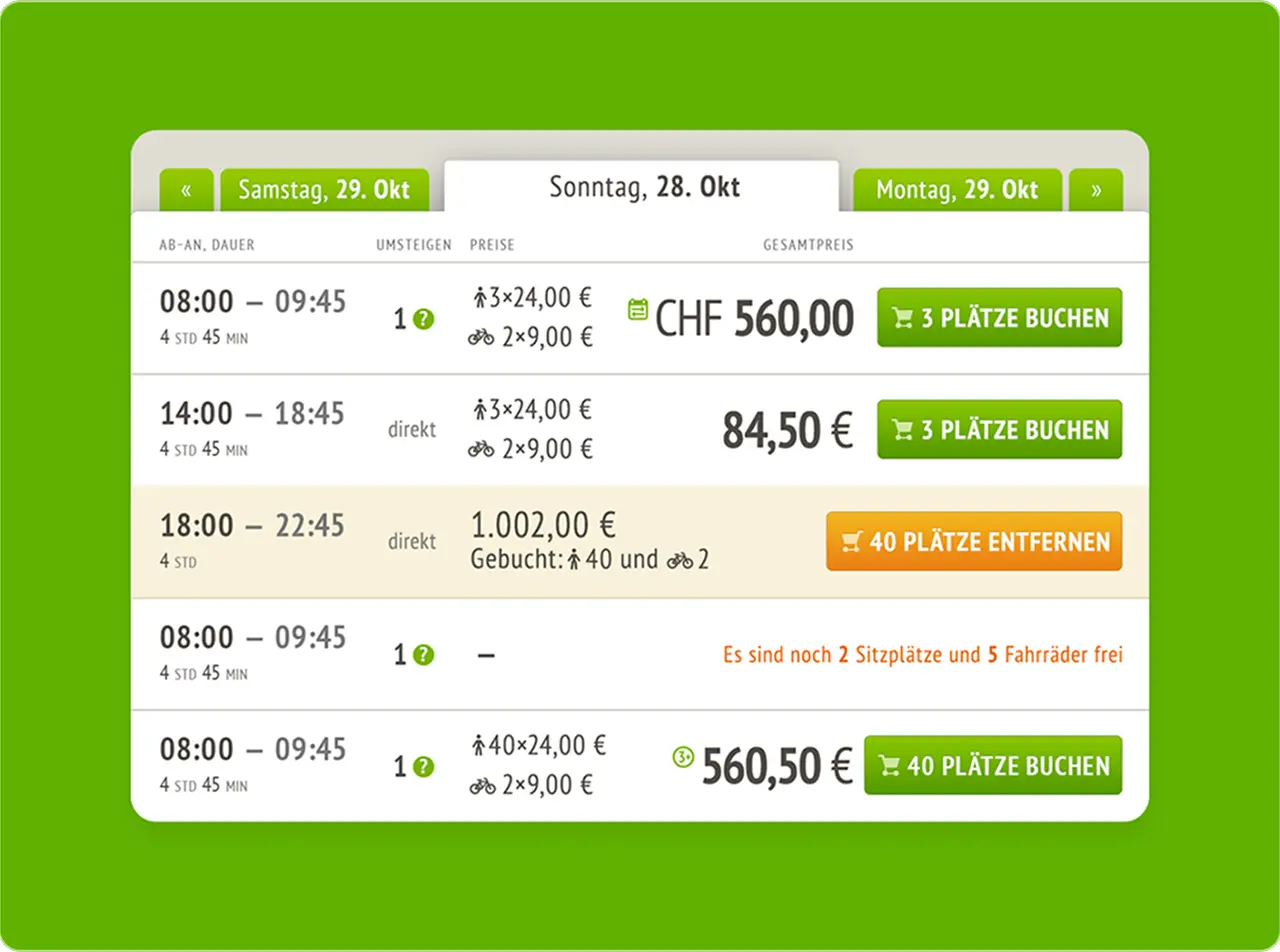
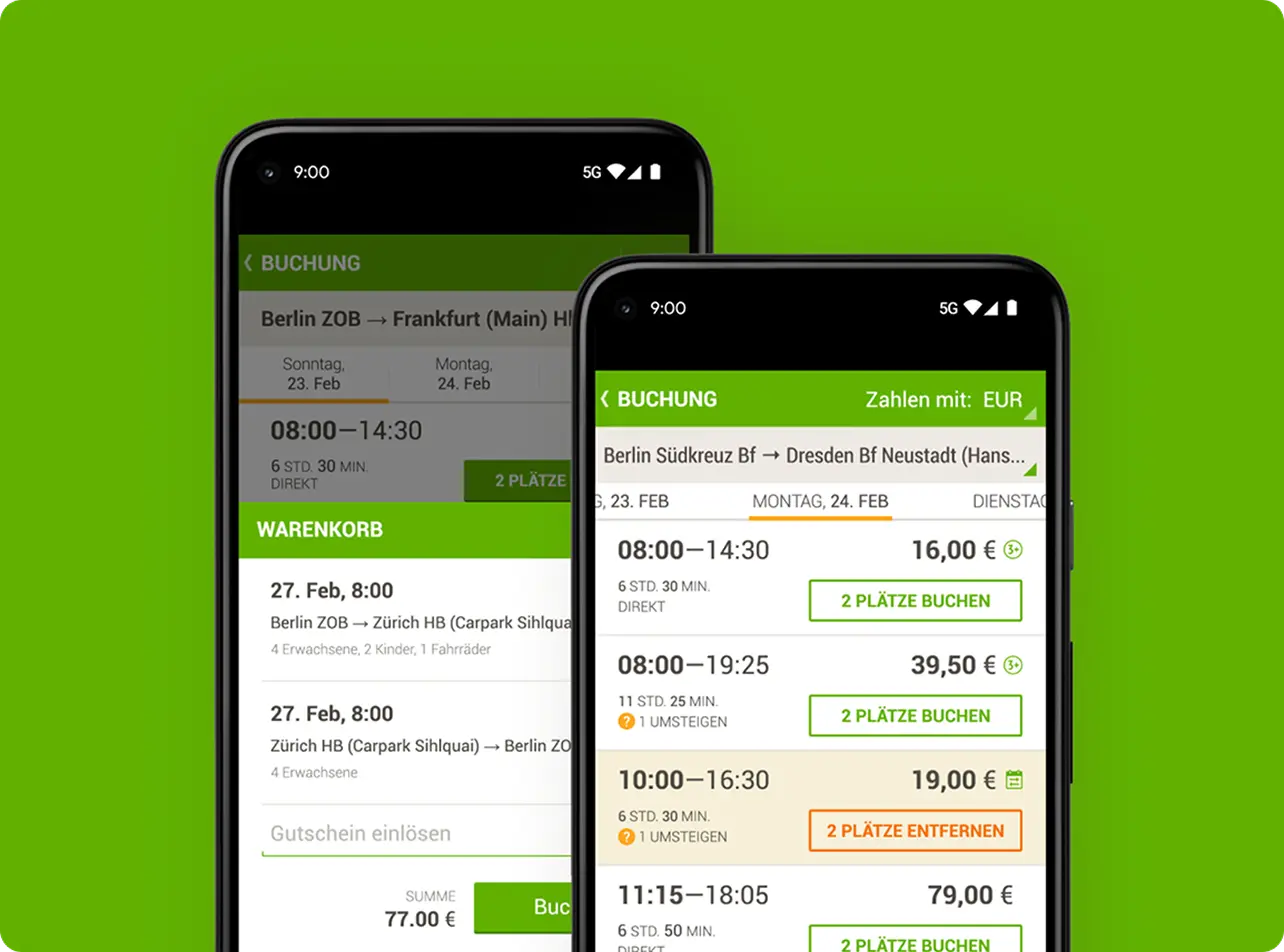
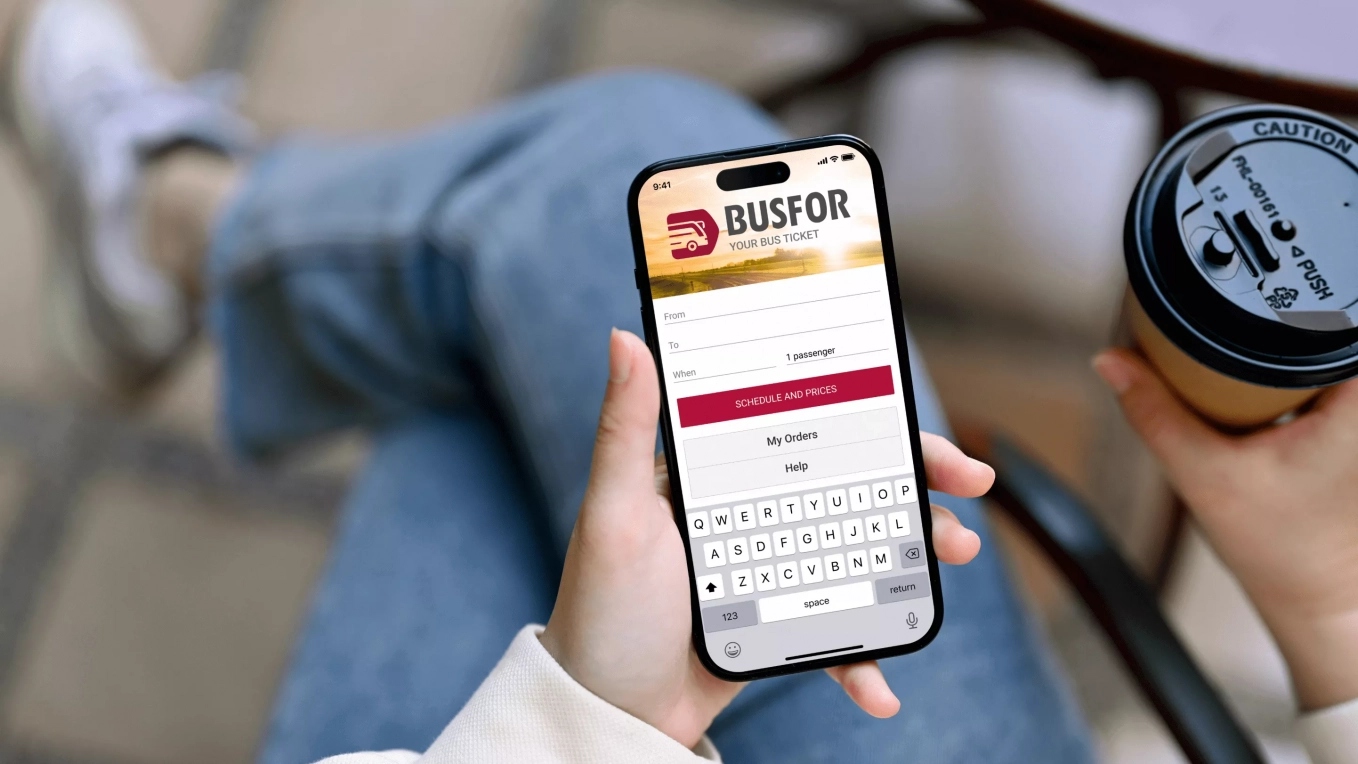
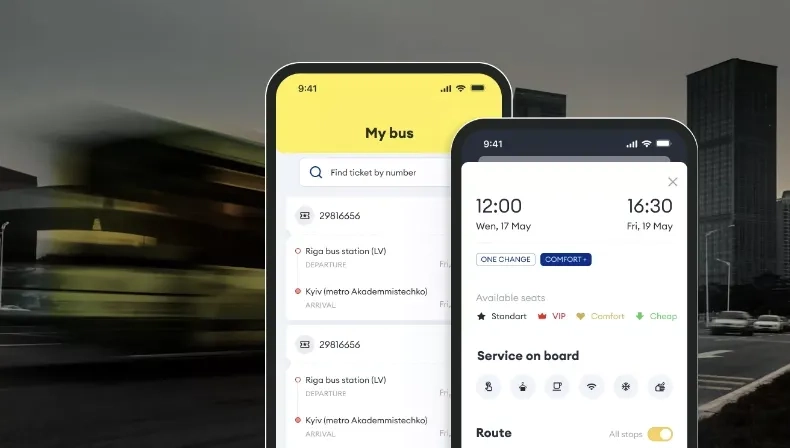
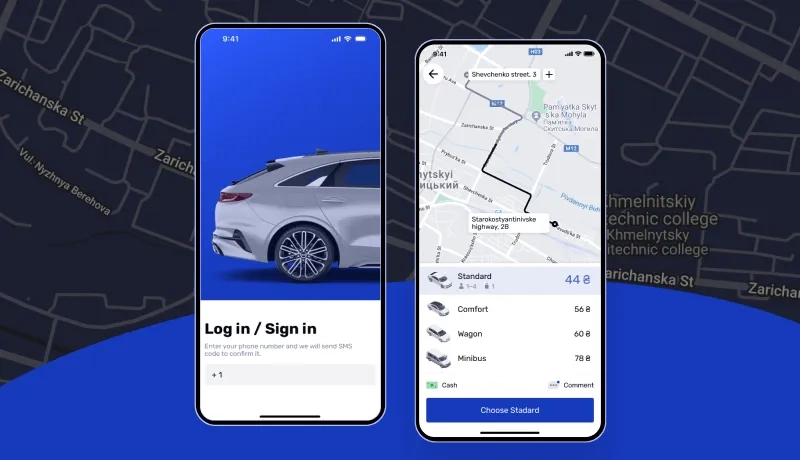
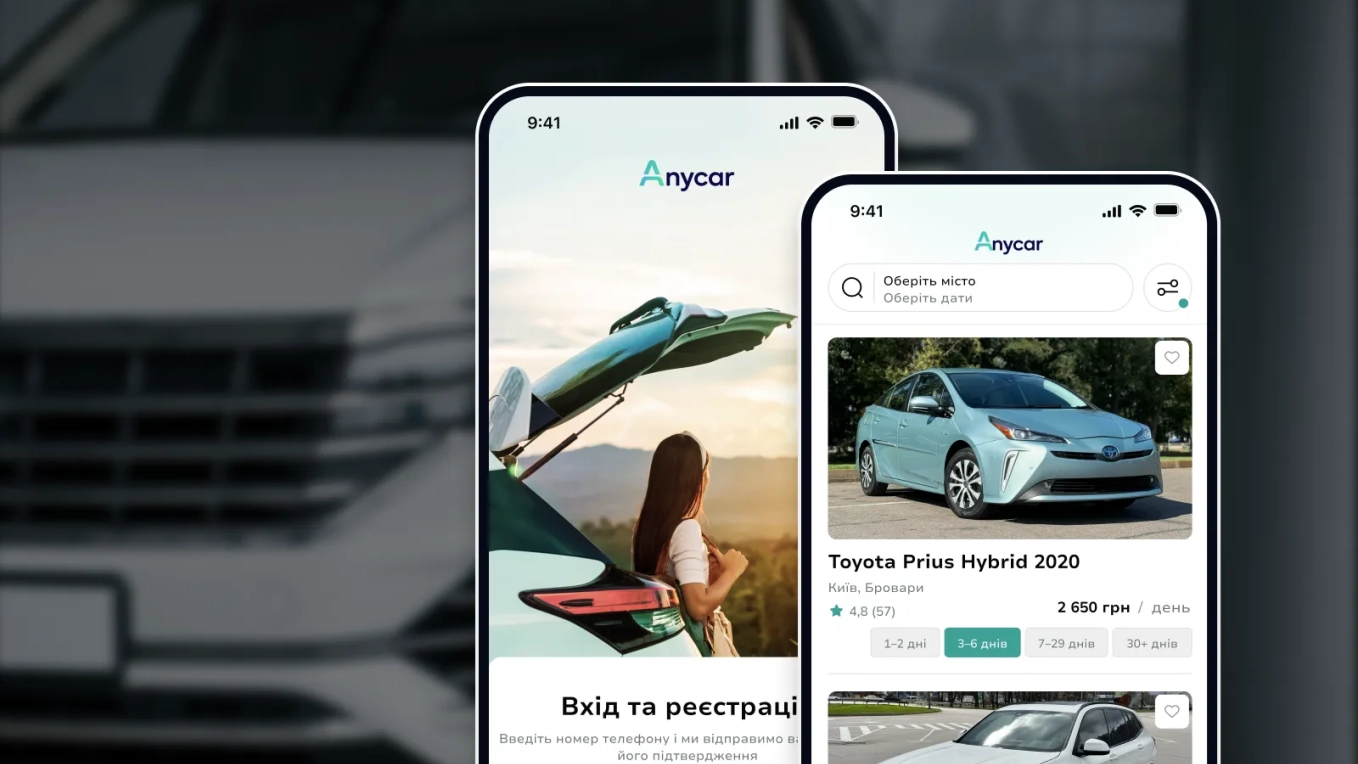


Aleksey K.
CTO at Berlin startup